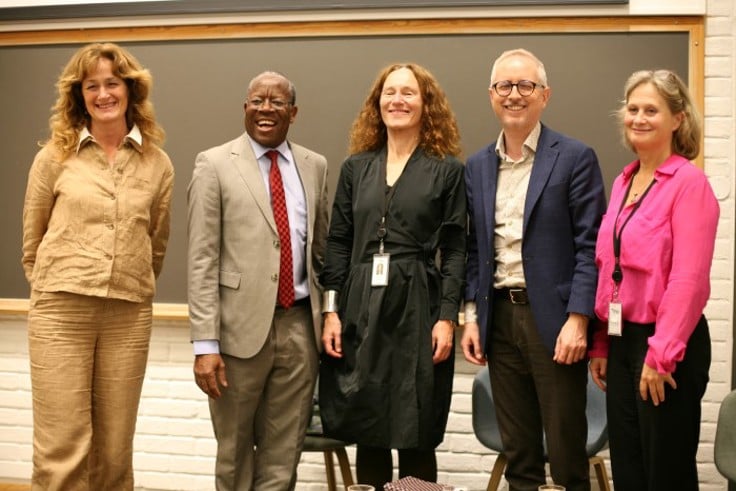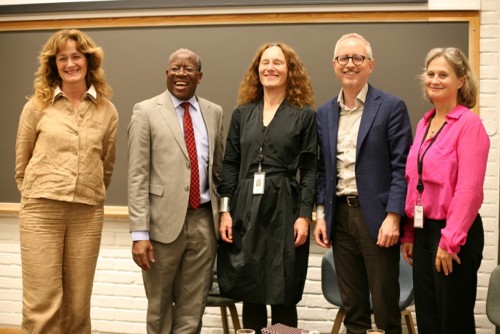Strengthening public health systems in Malawi
News
|Published
The director of the Public Health Institute of Malawi (PHIM), Dr. Benson Chilima, visited the NIPH to discuss the collaboration between the two sister institutes.
This news article is older than 30 days and the information may be outdated
Go to the home page"If Malawi is not capable of detecting a future pandemic, the world is no better off," said Dr. Chilima, in a discussion with his Norwegian counterpart, Dr Camilla Stoltenberg, and Norad's director, Bård Vegar Solhjell.
Building public trust
The three talked about the central, and quite similar, role the two public health institutes have had in their respective, very different countries during the COVID-19 pandemic. They discussed how all the countries of the world depend on each individual country being able to detect and respond to new epidemics and how to build sufficient trust so that information and knowledge is shared.
All three emphasized that long-term, professional collaboration between public health institutes is important for strengthening this work, and thus also strengthening the world's health preparedness.
Panel discussion with Ben Chilima (PHIM), Camilla Stoltenberg (NIPH), Bård Vegar Solhjell (Norad), and Ragnhild Dybdahl (NIPH).
Preparing for the next pandemic
None of them had a simple answer to how we will achieve a better distribution of the world's vaccines in the next pandemic. Dr Benson Chilima told how the lack of access to vaccines at the beginning of the pandemic, while everyone still wanted them, has now turned into an almost opposite situation: an abundance of vaccines and a pressure to get people vaccinated, while there is widespread natural immunity in the population (closer to 95% according to prevalence studies) and increasing vaccine skepticism in the population.
Dr. Chilima said: "Malawi needs to be able to detect and react to a new pandemic. It's a lot easier when we can just pick up the phone and ring a public health director you know in another country - which is now possible due to our close collaboration Together, we achieve so much more."
Building stronger public health institutes
This visit is part of the Institute of Public Health's Norad-funded BIS project, which aims to strengthen public health systems and institutes in low- and middle-income countries.
Country coordinator for Malawi in the BIS project, Trude Arnesen, said “The major goal of this collaboration is to support the Public Health Institute of Malawi, to become the institute they want to be. The main areas they have asked for assistance in, is infectious disease surveillance, institution building and biosafety training.”
During his stay, Dr. Chilima also met many of the professionals at NIPH and in Norad who have collaborated with Malawi and with PHIM since its establishment in 2007. The partners exchanged knowledge and continued to work on the agreements between the institutes.

